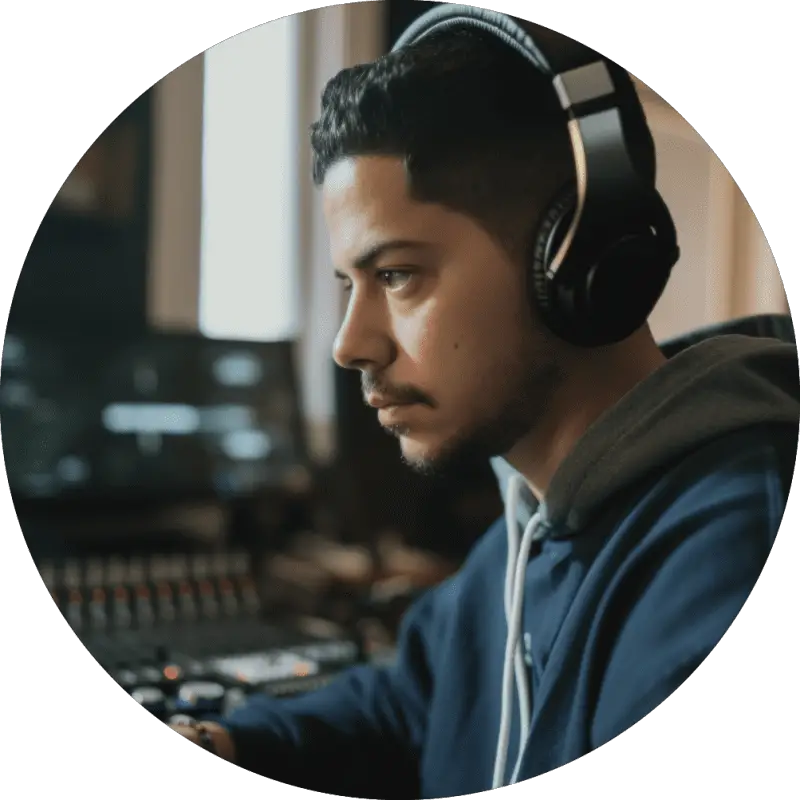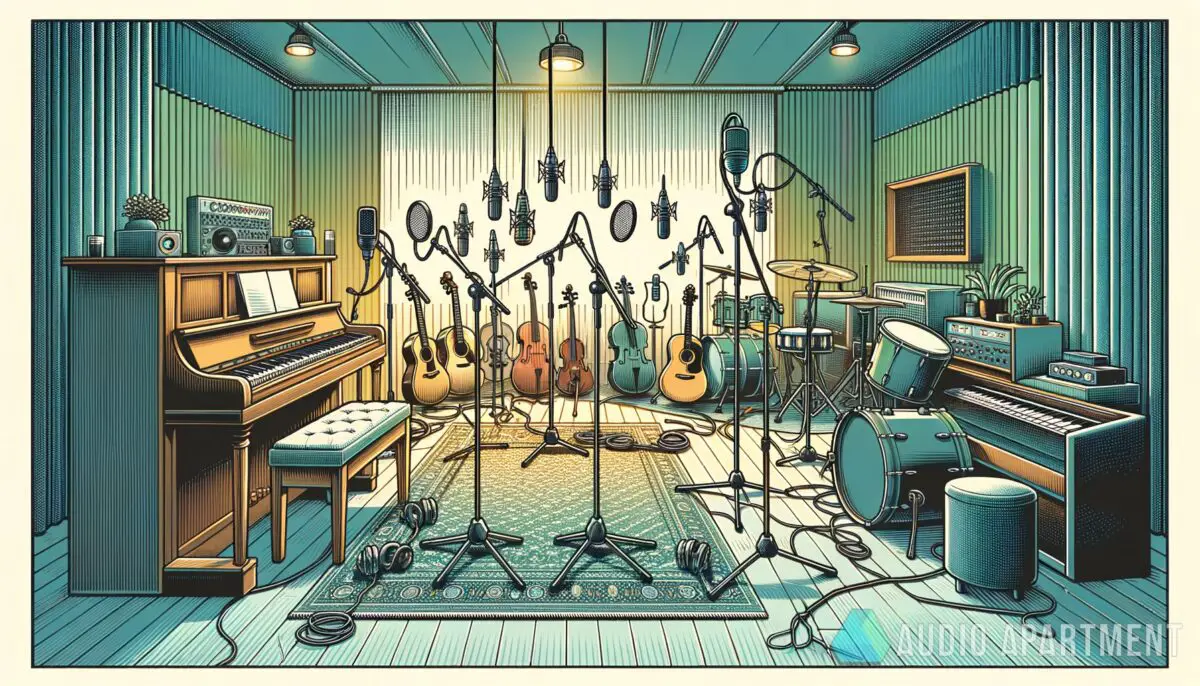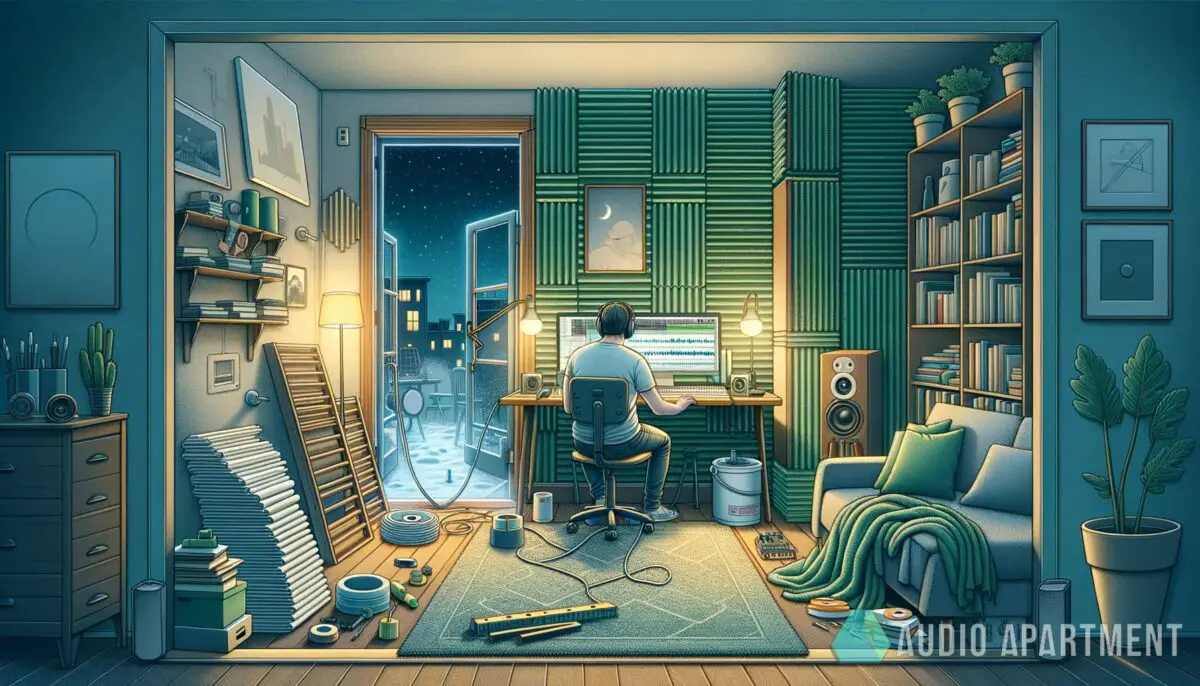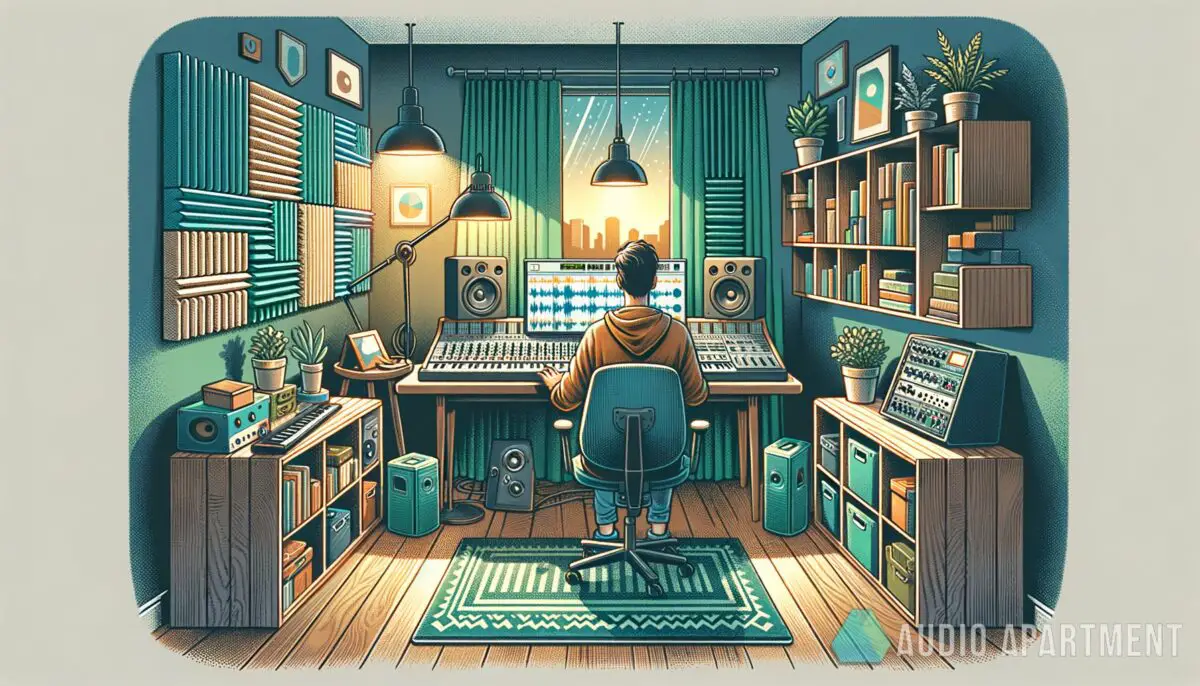Have you ever dreamed of hearing your music play on the radio, reaching thousands of listeners across the airwaves? You’re not alone. Getting your music played on the radio can be a game-changer for any aspiring artist or band. But how to get your music played on the radio?
In this blog post, we’ll explore effective strategies and proven techniques to help you navigate the complex world of radio promotion and increase your chances of getting your music played. From crafting the perfect pitch to building relationships with radio stations, we’ve got you covered.
What is radio play?
Radio airplay refers to having music played on the radio and is sometimes known as “radio plays” or simply “spins.” In the “analog” music industry of the twentieth century, radio was the most powerful promotion channel. An obscure singer may become a nationwide superstar with primetime radio rotation in a matter of days.
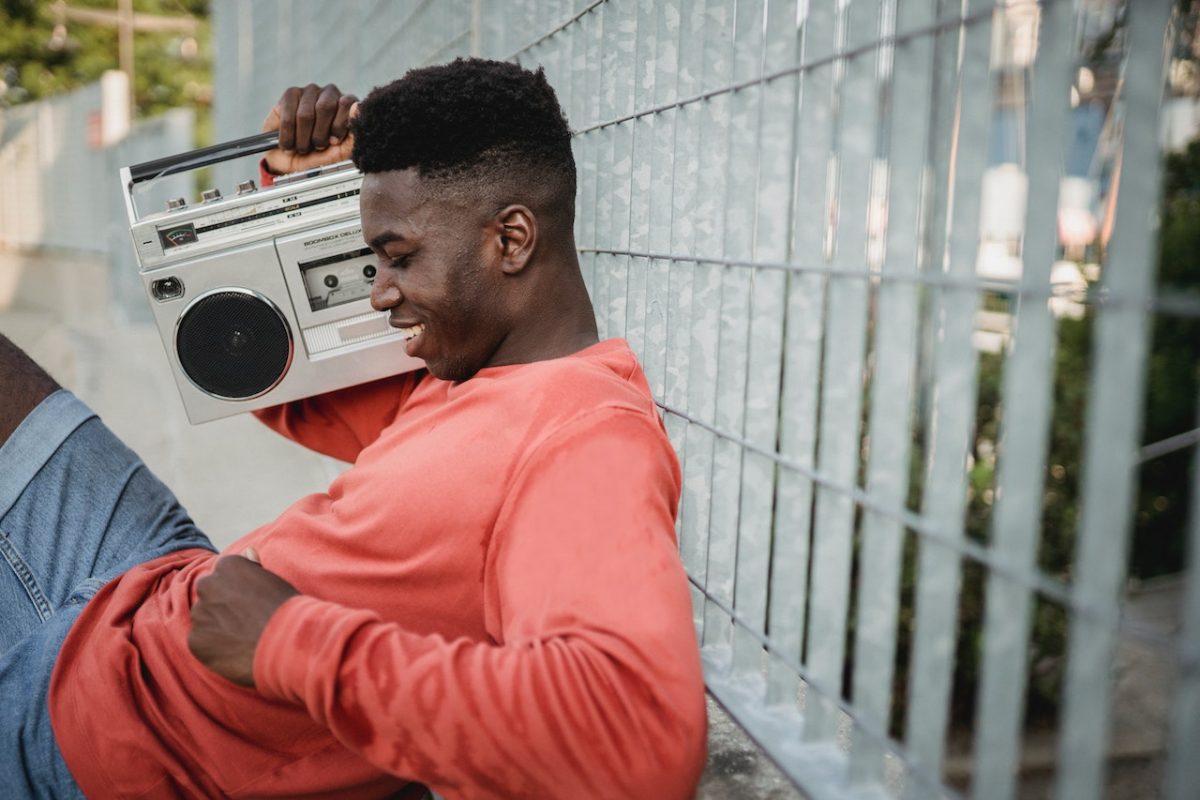
Yet, circumstances are changing, and over the last decade, radio has been pushed to the outskirts of the music industry. The new promotion channels — first social media, then streaming services and playlists — became a hot topic among music industry insiders.
But, while the internet arena has provided new tools to technologically savvy music marketers, radio has never truly lost its relevance.
Types of radio play
What most people consider “radio” is essentially only one component of the landscape: commercial radio. But, if you’re starting and attempting to create a following, it might be best to start with non-commercial radio.
- Commercial radio
Commercial radio is the most visible and challenging way to hear your song. These are the typical FM radio stations, such as 101.6 “The Joint!” (or whatever your local version is), and the prominent Sirius XM satellite radios, which broadcast music with intermittent advertisements.
They account for most radio listening (which is 14 times larger than all streaming platforms combined), so getting your music aired on commercial radio can be a career-maker, especially if you’re a starter and want to create a regional audience. - Non-commercial radio
Non-commercial radio, sometimes known as non-profit radio, is a less well-known and less significant type of radio (though it can also include podcasts and radio stations). College radio stations, smaller independent radio stations, and web-only online radio all fit into this group.
While non-commercial radio may not have the prestige (or audience) of commercial radio, it is easier to get on and, thus, a good place to start when seeking airplay. Furthermore, some more influential non-commercial radio stations are frequently used as scouting grounds for mainstream radio programmers.
AKAI Professional MPK Mini MK3

AKAI Professional MPK Mini MK3
Why should you get your music played on the radio?
Have you listened to a song nonstop recently? This is the result of constant exposure. The radio is fantastic because it allows people to repeatedly listen to the same music. Radios repeatedly play a narrower selection of songs rather than a random playlist. So your song is listed too many times.
radio is fantastic because it allows people to
repeatedly listen to the same music
Additionally, the radio is your best bet when it comes to finding new music. Radio stations now have more options for delivering their programming, most notably via streaming, thanks to the proliferation of new technology and gadgets that facilitate discovery in new ways.
How do you get your music played on a radio station?
Getting your songs played on the radio is an important part of releasing music the right way, and it can have a big effect on your career. Once upon a time, CDs were the standard for submitting music. New musicians, however, must keep up with the times and learn how to submit their work to radio in the digital age.
-
Know who to approach.
One of the best ways to get your music played on the radio is to get in touch with radio stations. Knowing who to talk to at radio stations is essential. If you’re targeting larger radio stations, find the person responsible for song selection and pitch your song to them.
In this case, “this” might refer to a particular on-air personality, the station’s producer, the head of programming, or the head of music. A simple “contact” at radiostation should do the trick for a tiny radio station that may not have many employees.
Try searching for the producer’s information on the station’s website or social media pages, or call the station and ask for the information (they may or may not provide it to you, but it’s worth a try!). Before sending anything to a radio station, check their submission guidelines to ensure you are doing things correctly.
-
Know how to submit your music.
Sending an electronic press kit, a music press release, or a one-sheet with links to 1-3 of your best songs is a common way to get in touch with radio stations, news outlets, and blogs. Some artists and labels still mail or hand-deliver CDs to radio stations, even though this is becoming less and less common.
However, most submissions and demonstrations to DJs and radio stations are now sent digitally.
-
Target the right stations.
It will take time for your song to get heard on major national stations. Getting played on the radio is a very competitive field, with hundreds of other musicians potentially competing with you. So consider starting with smaller stations.
Many communities, colleges, and online radio stations are looking for new music and encourage aspiring bands and musicians to send them what they have. Your chances of being played early in your career increase if you submit your music to smaller stations since they won’t get as many submissions.
Getting in touch with stations that play music in your genre is also a great strategy. If you’re starting as a rap artist, your best bet is to submit your song to a hip-hop radio station. If you like thrash metal, you should get in touch with a station that consistently plays that genre.
-
Consider your online presence.
Making your music well-known online and establishing a solid social media following might help you get radio play. And although it may seem harsh, many A&Rs will only listen to your music if you’re active on at least one major social networking site and have at least three followers.
Also, promoting a music album these days means having a strong presence on social media. So display your dedication to the cause of having your music played on-air and online by DJs and radio personalities.
The best (and hardest) strategy for getting radio play is to generate buzz about your music, build a dedicated fan following, and then approach radio stations directly to request play.
-
Hire a radio plugger.
Radio pluggers have extensive industry knowledge and can facilitate your communication with radio stations. Also, these professionals can change the minds of DJs, program directors, and other decision-makers because they already know the top people in radio.
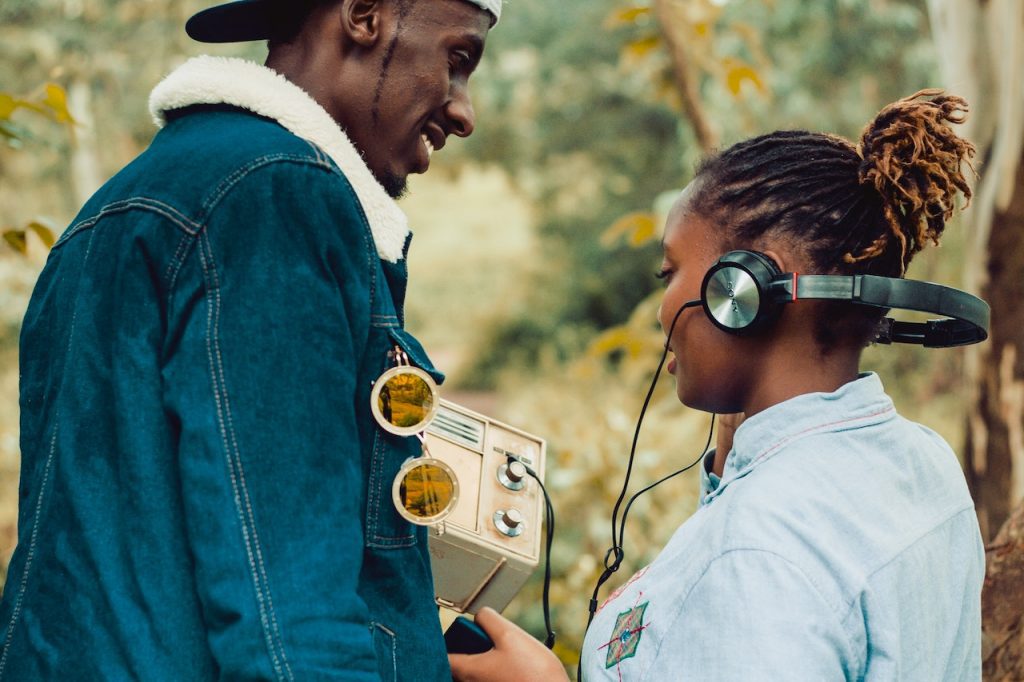
Tips for submitting your songs to a radio station
To hear one’s songs played on the radio is a defining moment in the careers of many musicians, marking the completion of their creative vision. The radio makes it possible to reach a much wider audience. But is there a certain format for submitting to radio stations?
- Check the sound quality: This is the single most important part of the procedure. Submitting high-quality audio to radio stations is mandatory. This means that the song has gone through the whole creative process, from choosing the title to composing and arranging the music, recording the vocals, mixing, and mastering.
- Submit only your best work: This is the single most important part of the procedure. Quality matters, so make sure you hand in something impressive. Because of this, its musical development must have taken a long time, including writing, arranging, recording, mixing, mastering, titling, etc. Here, the difficulty is picking a single song that represents your musical style and has a good chance of being heard by a wide audience.
- Respect the radio format: For airplay, you should avoid using profanity. Prepare a clean and unclean mix of your song for this purpose.
- Watch our cutoff time: These days, the ideal radio cut clocks in at around three minutes. There are always exceptions to any rule, but a popular song often has these characteristics.
- Make a digital press kit: When advertising on the radio, it’s helpful to have a digital press kit or one-sheet on your website that potential listeners can look through. This background provides a sneak peek into your narrative, allowing you to say less in your message.
If you want even more tips and insights, watch this video called “How To Get Your Song On The Radio (Record Label Owner Explains)” from the Full Circle Music YouTube channel.
Frequently asked questions (FAQ)
Do you still have questions? Below are some of the most commonly asked questions about getting music played on the radio.
How much does it cost to get your music played on the radio?
According to two more seasoned radio professionals, the full price tag for promoting a song to “urban” radio and turning it into a hit was between $100,000 and $125,000.
Can you ask a radio station to play your song?
Look for the DJ’s email address on the radio station’s website to increase your chances of getting your song played. Find the “Contact Us” or “Contact Information” area after you’ve arrived at the radio station’s website.
Do I get paid if my song is on the radio?
Composers and performers usually get royalties when their songs are broadcast on the radio.
How much does a songwriter make when a song is played on the radio?
Payouts for mechanical royalties per song are presently 9.1 cents. It’s common practice for co-authors and publishers to divide this up. There is no industry standard regarding performance royalties. Rates are established by discussions between songwriters and their respective performance rights organizations.
What is the DMDS?
Commercial radio stations use the DMDS (Digital Music Delivery Service) to get new songs. They give performance metrics to the radio station, ensuring that the “facts” you give about listenership are true.
Do you need to pay to get your song on the radio?
Your strategy for reaching an audience will determine whether or not you should pay to have your music played on the radio. Many radio stations feature online submission forms where you can upload your music for free in the hopes that it will be heard.
Not all musicians will succeed if they depend on submissions alone in the hopes that their music will be aired. It’s smart to use more than one method. If you can afford it, paid advertising may be a good investment. The pricing will change based on whether you submit a single or a longer piece.
Conclusion
There you have it! We’ve discussed all the important aspects of getting your music played on the radio. If you follow our suggestions and apply some practices, the key is to leverage the strengths of each channel in a way that makes them complement each other instead of fighting for attention. Then there is no doubt that your career as a musician will flourish.
This article covered what music is, what radio is, and how you get your music played on a radio station. Here are some key takeaways:
Key takeaways
- Radio is a form of wireless acoustic communication in which a single broadcast station sends audio signals to many listeners with radio receivers.
- The radio is your best bet for finding new music due to receptive listeners.
- Getting your songs played on the radio is an important part of releasing music the right way, and it can have a big effect on your career.
- Your radio outlet is the perfect way to showcase your music, pair it with your influences’ music in a playlist, and easily share it with the world.
- Radio play may help you get exposure and reach new audiences.
So, do you like to get your music played on the radio? And did I cover everything you wanted to know? Let me know in the comments section below (I read and reply to every comment). If you found this article helpful, share it with a friend, and check out my full blog for more tips and tricks on music production. Thanks for reading, and never stop making music.

